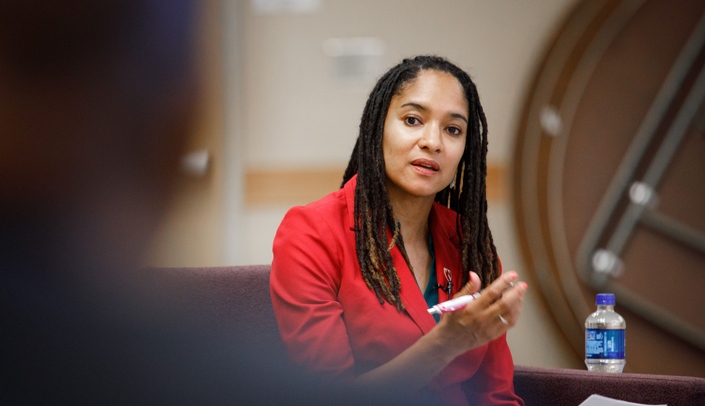“Hard” history was the topic under discussion at the latest Conversations for Inclusive Excellence event, held on Feb. 10 via Zoom.
Sheritta Strong, MD, assistant vice chancellor for inclusion, hosted the event, which included a viewing of the TEDx talk by Hasan Jeffries, PhD, of Ohio State University, on confronting what Dr. Jeffries called “hard history.”
Americans “actually hate history,” Dr. Jeffries said in the talk. “What we love is nostalgia. Nostalgia — we love stories about the past that make us feel comfortable about the present.”
Dr. Jeffries discussed the famous quote by George Santayana that those who cannot remember the past are condemned to repeat it.
“Inherent in this statement is the notion that at some point, we stopped doing the things that created inequality in the first place, and the harsh reality is, we haven’t,” Dr. Jeffries said.
Watch Dr. Jeffries' presentation here.
Dr. Jeffries also discussed the racial wealth gap; he cited the median wealth for white households as $147,000, compared to a median wealth of $4,000 for black households. Dr. Jeffries traced his only family history back to his great-great grandfather, who was born enslaved, to provide a personal perspective on how racism has systemically kept Black households from accumulating and passing on wealth.
“When I think about the past, my concern about not remembering it is not that we will repeat it if we don’t remember it,” he said. “My concern, my fear, is that if we don’t remember the past, we will continue it.”
Dr. Strong and moderators also spoke to participants on the rules regarding contacting legislators to comments on bills or express opinions while the Nebraska Legislature is in session. (See information here.)
Additionally, Dr. Strong discussed the growth of employee resource groups, including two new groups, a veteran and military affiliated group and a women’s group at Nebraska Medicine. “We hope to have groups all across campus – UNMC and Nebraska Medicine – where people feel they can engage and find individuals who help their sense of belonging at UNMC.”
